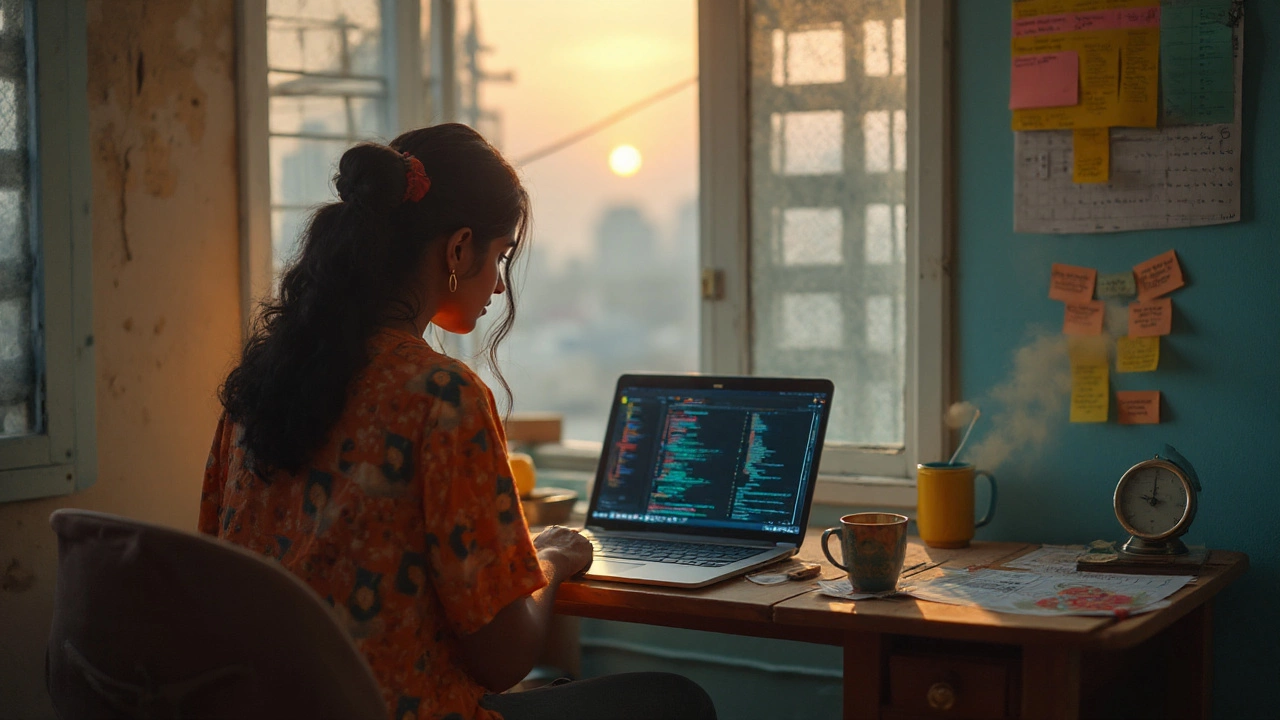Does Coding Get Easier? What Happens When You Keep Practicing
Most beginners ask the same question: does coding get easier after a few weeks or months? The short answer is yes – but only if you train the right way. When you write code, your brain builds new pathways, just like learning a musical instrument. The more you play, the smoother the moves become.
Why the Learning Curve Starts Steep
At first, everything feels foreign. You’re memorizing syntax, hunting for the right functions, and debugging errors that seem to appear out of nowhere. This stage is called the "syntax shock" and it’s normal. Your brain is rewiring to understand concepts such as loops, conditionals, and data structures. During this phase, progress feels slow because you’re juggling many new ideas at once.
Research on skill acquisition shows that the first 20 hours give you a basic level of competence, but the next 80 hours bring noticeable speed gains. That’s why you might feel stuck after a couple of days but notice a jump after a few weeks of consistent practice.
How to Make Coding Feel Easier Faster
1. Code daily, even if it’s just 15 minutes. Short, regular sessions train muscle memory better than one long binge. A daily habit keeps the terminology fresh in your mind.
2. Break problems into tiny steps. Instead of trying to build a whole app, start with a single function that prints "Hello". Solving many tiny puzzles builds confidence and reinforces patterns.
3. Read other people’s code. Platforms like GitHub let you see how experienced developers structure programs. Spotting recurring patterns reveals shortcuts you can borrow.
4. Use a "debug journal". Write down each error, why it happened, and how you fixed it. Over time you’ll spot the same mistakes and avoid them instantly.
5. Pick a project you care about. Whether it’s a simple game or a personal budget tracker, interest fuels persistence. When you’re excited, you’re more likely to push through frustrating bugs.
Following these habits mirrors the advice in our post "How Fast Can You Learn Coding? Timeframes, Tips & Roadmap for Beginners," which emphasizes realistic timelines and practical shortcuts.
Eventually, you’ll notice two major changes: you’ll recognize common patterns without thinking, and you’ll spend less time searching for syntax. The mental load drops, and coding starts to feel like a conversation rather than a puzzle.
Remember, the "easier" feeling doesn’t mean you stop learning. It means you’ve built a foundation that lets you stack new concepts faster. As you add more languages or frameworks, the underlying logic stays the same, so each new skill arrives with less friction.
In short, coding definitely gets easier – but only if you keep practicing smartly. Stick to daily coding, break problems down, learn from others, log your bugs, and work on something you love. Your future self will thank you when the once‑daunting codebase looks like a set of familiar building blocks.
- September
6
2025 - 5
Does Coding Ever Get Easier? The Real Learning Curve and How to Speed It Up
Wondering if coding gets easier? Yes-when you build habits, reduce guesswork, and practice the right way. Here’s a clear plan, timelines, and fixes for plateaus.
Read More